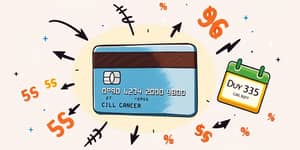
Feeling the shock of an unexpected credit card charge can be emotionally unsettling and financially jarring. Whether it’s an unauthorized transaction, a billing error, or a service you never received, the path to resolution can feel overwhelming. This guide empowers you with clear steps, legal insights, and practical tips to reclaim control and protect your financial well-being.
The Fair Credit Billing Act (FCBA) is your ally when tackling erroneous or unauthorized charges. Under federal regulations, you have your right to dispute charges within specific timeframes, and issuers must respond promptly. This foundation ensures credit card holders are not left bearing mistakes or fraud.
Key timelines include:
Remember, you can withhold payment on disputed amounts, and protection under federal law means no interest capitalizes during the review.
The first step in any dispute is clear identification of the problem. Common valid reasons include:
Once you pinpoint the issue, it’s crucial to gather receipts and order confirmations. Secure all relevant documents: statements, emails with the merchant, shipping labels, photos of defective items, or screenshots of order details.
Before escalating to your card issuer, contact the merchant directly. Many disputes are resolved amicably at this stage when you present clear evidence. Explain the situation calmly and request a refund or correction.
While this step is sometimes optional, establishing a paper trail and showing your good-faith effort can strengthen your case. Keep notes of dates, names, and the merchant’s responses.
If the merchant cannot resolve the issue or you suspect fraud, it’s time to dispute with your card issuer. You can initiate a dispute by phone, online portal, mobile app, email, or mail. Federal law requires a written notice, so consider sending a certified dispute letter to the billing inquiries address.
Include in your dispute:
Keep a copy of everything you submit; these records are invaluable if you need to appeal later.
Within 30 days, your issuer must acknowledge receipt of your dispute. You may see a provisional credit during investigation applied to your account, relieving you from the burden of the disputed amount until a decision is reached.
During this period:
Most cases are resolved within 30 days, though law allows up to 90 days for complex matters.
Once the investigation concludes, you will receive a formal notice of the decision. There are three primary outcomes:
If the decision is not in your favor but you believe it’s unfair, you typically have the right to appeal. The notification will outline the appeals process. Persevere—your diligence can turn the tide.
In rare situations, such as natural disasters or emergencies, some issuers may extend dispute windows. Always check with your provider for special accommodations.
Use this reference table to keep track of critical deadlines:
Disputing a credit card charge can feel intimidating, but armed with knowledge and perseverance, you can reclaim control over your finances. Every document you collect, every letter you send, and every conversation you record contributes to a compelling case in your favor.
Remember that credit issuers and federal protections are designed to support you. By following these steps—identifying the issue, documenting evidence, engaging the merchant, and filing a thorough dispute—you stand on solid ground to achieve a fair outcome.
In the pursuit of financial justice, you are not alone. Millions of cardholders successfully resolve disputes each year. Take a deep breath, follow this roadmap, and move forward with confidence: your voice matters, and your rights are vigorously defended.
References













